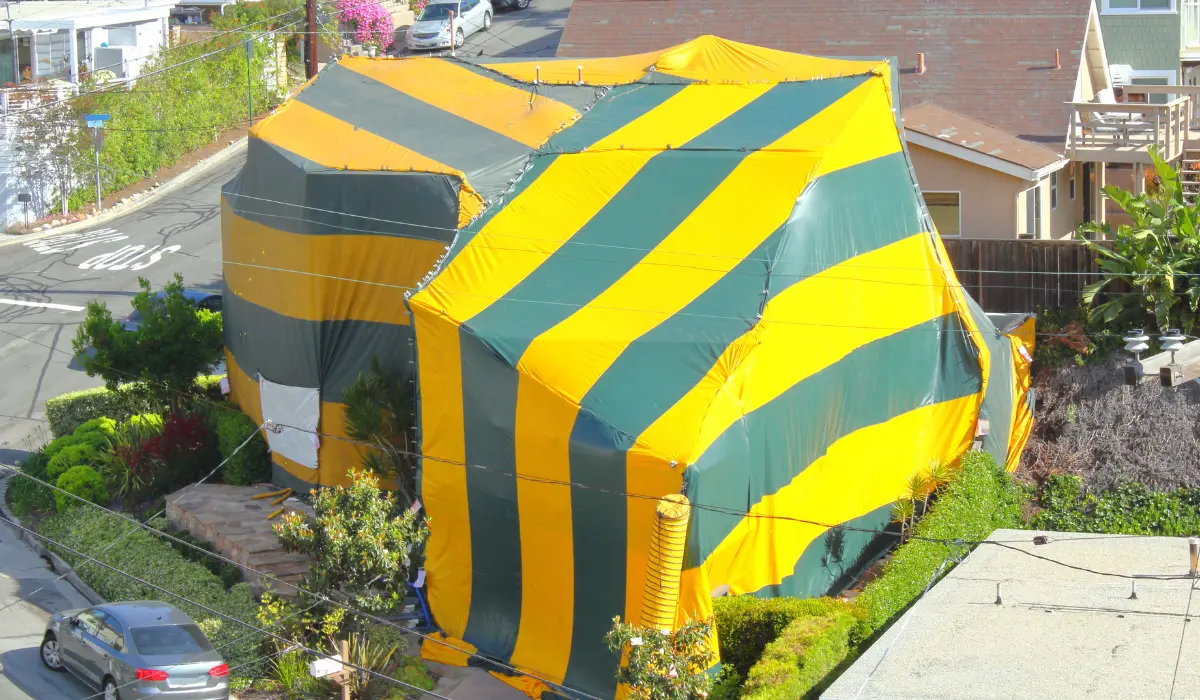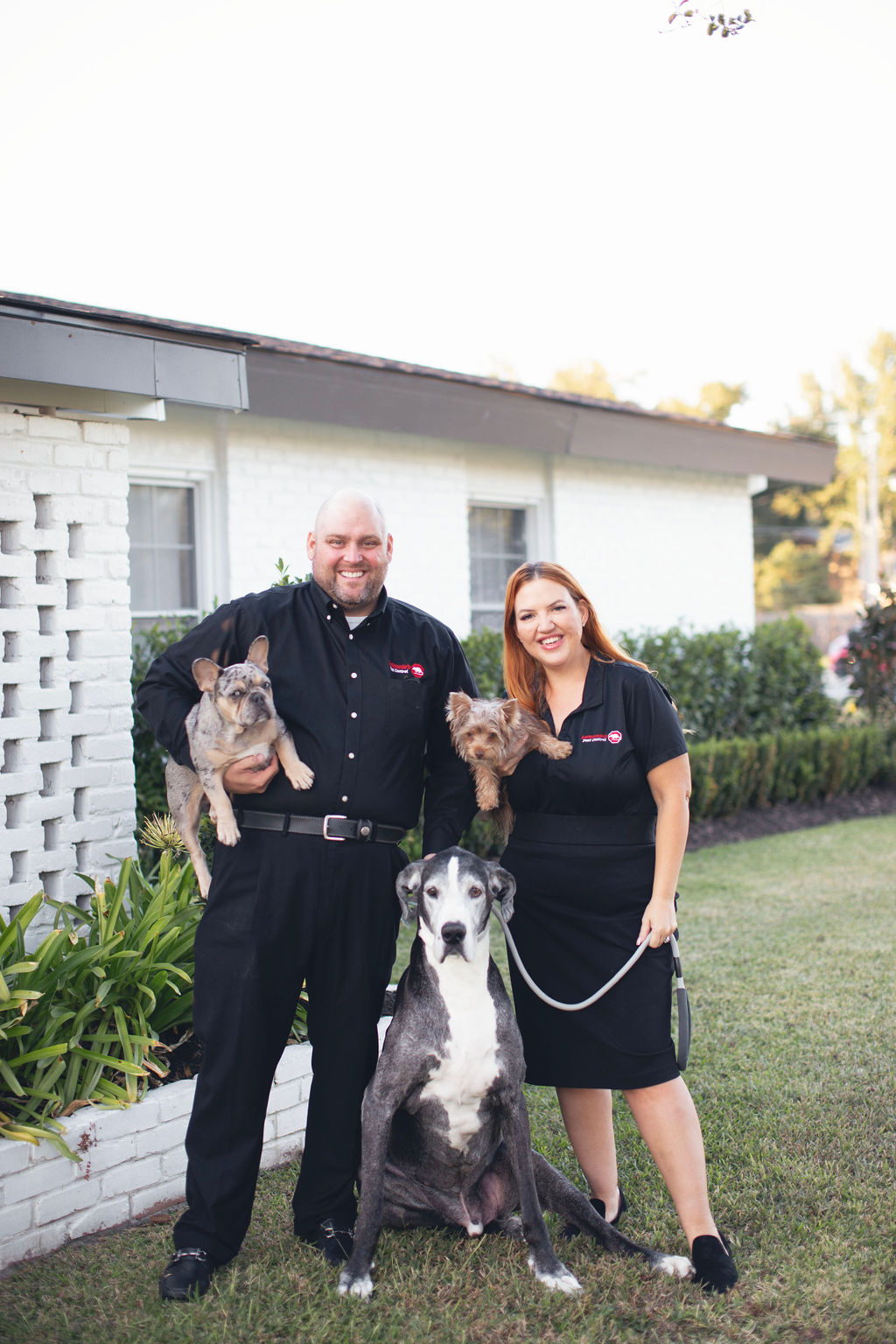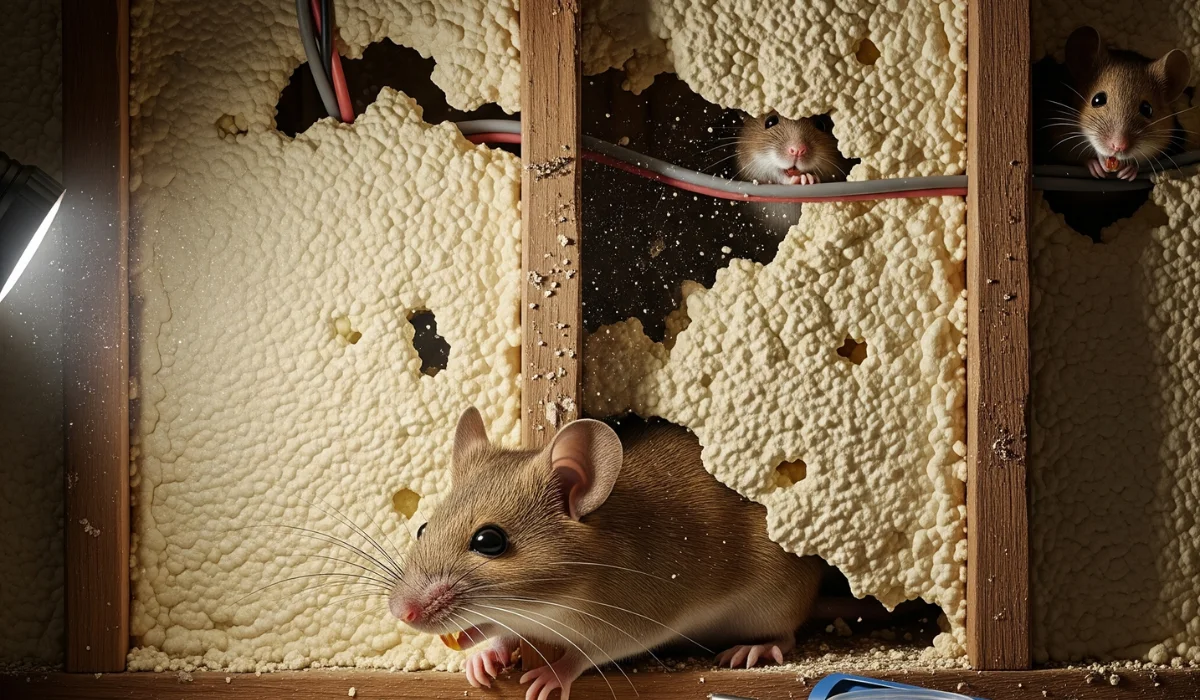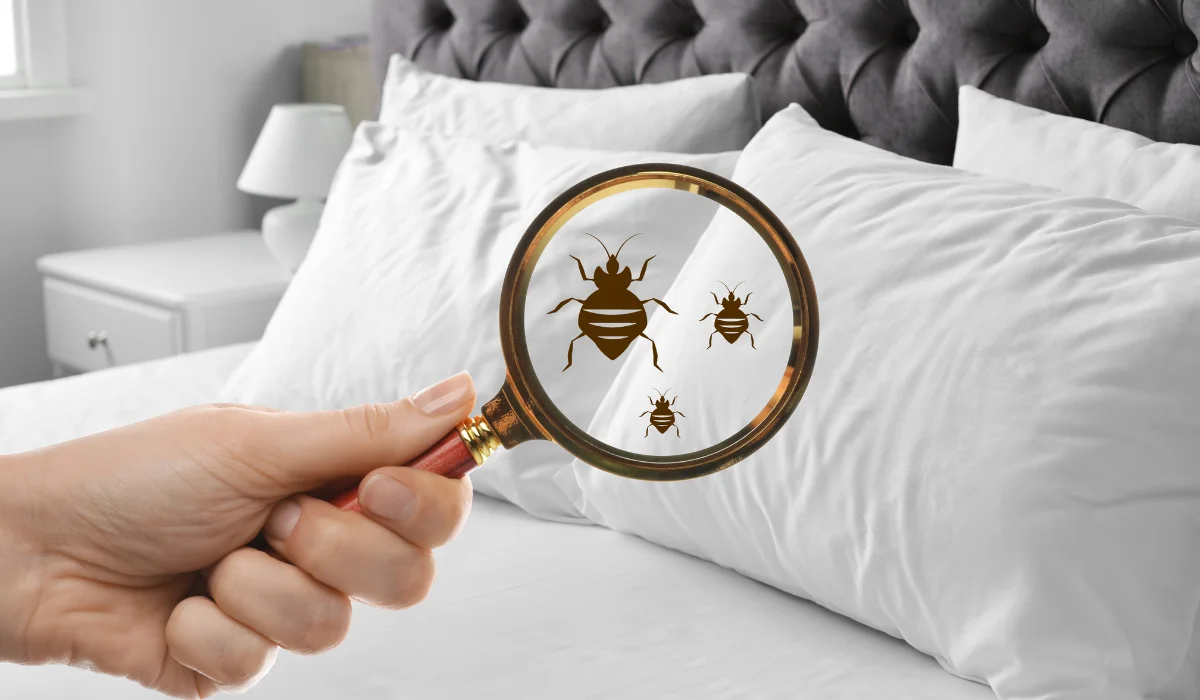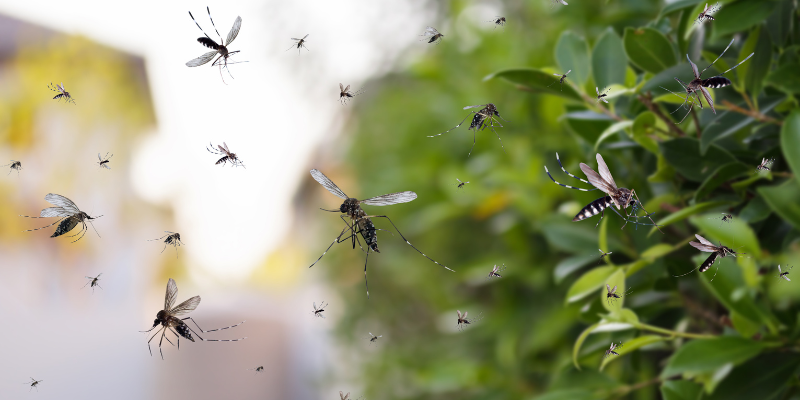If you’ve ever had a termite infestation or even just heard the horror stories, you know how important it is to keep your home protected. Termites can cause expensive structural damage before you even realize they’re there.
That’s why homeowners across South Louisiana are always asking us: How long does a termite treatment last?
Let’s break that down, and then we’ll get into what can impact that timeline, and what you can do to make sure your pest control lasts.
Key Takeaways
• Most termite treatments last between three and five years, but that depends on the method and upkeep.
• Liquid treatments and bait systems are used for different termite types and work in different ways.
• Moist soil, poor landscaping, and wood materials can shorten how long your termite treatment protects your home.
• Regular inspections and professional service plans help homeowners catch problems early and avoid expensive damage later.
How Long Can You Count on Termite Protection?
Generally, a liquid termite treatment can remain effective for up to five years. Termite bait stations, which are part of many modern bait systems, usually need maintenance and fresh bait every 3 to 5 years to keep the protection going.
This is under ideal conditions, of course. Homes in humid, flood-prone areas like ours in South Louisiana may need a more hands-on approach.
Let’s look at what can cause them to break down sooner or stick around longer.
Type of Termite Treatment
Different treatment options give different results.
Liquid barrier treatments are a tried-and-true, effective method for stopping subterranean termites from breaching the foundation.
Soil treatment forms a shield around the home, and as long as it’s intact, it stops termites in their tracks.
Bait stations work differently. They eliminate the entire colony over time by using slow-acting termite bait that’s shared between termites. It’s a smart option for preventative treatment, especially in areas where termite activity is common.
Heat treatment and fumigation are typically used for drywood termites.
DIY or professional, these are usually one-time solutions and don’t provide long-term protection like liquid or bait systems do.
Here’s a quick comparison of the most common termite treatment types and how long you can expect each to protect your home:
| Treatment Type | Best For | Duration | Notes |
|---|---|---|---|
| Liquid Barrier | Subterranean Termites | Up to 5 years | Creates a protective soil shield around the home |
| Bait Stations | Subterranean Termites | 3–5 years | Requires periodic monitoring and rebaiting |
| Fumigation/Heat | Drywood Termites | One-time | No ongoing protection; addresses current infestation only |
Species of Termites
Knowing what kind of termites you’re dealing with is key.
Down here in South Louisiana, we regularly see subterranean termites and drywood termites. Each requires a different control strategy.
Subterranean termites live underground and usually enter homes through the soil, so a liquid termite treatment or bait systems are ideal.
Drywood termites, on the other hand, nest inside the wood and don’t need contact with the soil. That means you might need wood treatment or a more invasive approach like tenting or foam injections if the infestation is deep inside your walls.
A professional termite inspection can help identify the species of termites and guide the right pest management plan.
Condition of Your Soil and Landscaping
Things like soil erosion, poorly placed landscaping, or constant standing water can reduce how long your soil treatment or liquid barrier lasts.
If the soil shifts or gets washed away, that protective barrier might get damaged, leaving an opening for future infestations.
Raised homes or older properties often need more attention.
At LaJaunie’s, we tailor our termite control plans based on your home’s foundation, soil condition, and layout to get the most out of each treatment.
Consistency of Termite Inspections
Even the best pest control services aren’t a one-and-done deal.
Skipping your annual termite inspection is a quick way to let a new termite colony sneak in without you knowing. Early signs of activity aren’t always obvious, but catching them early makes a huge difference.
That’s why we always recommend enrolling in a plan like our Complete Protection Program. Our techs handle the annual inspection, replace any bait when needed, and look out for early signs of termite damage or activity.
Construction and Materials of Your Home
Some building materials naturally last longer under pressure from termites.
Homes with cellulose-based wood, for example, are more attractive to termites and may need more frequent monitoring.
If your property doesn’t already have physical barriers in place, like stainless steel mesh or sand, that could also cut into your treatment’s lifespan.
We see a lot of homes in our area with exposed wood and crawlspaces, which means preventive measures are even more important.
Whether You Maintain Preventative Measures
Your behavior matters, too.
If you store firewood against your home or have mulch touching the siding, you’re sending termites an open invitation.
Letting moisture collect near the base of your home, skipping gutter cleanings, or ignoring small leaks are other common missteps that invite termite problems.
Regular maintenance, combined with professional help from a reliable pest control company, can help your treatment last much longer and avoid the need for retreatment.
Keep Termite Treatment Working for the Long Haul
LaJaunie’s Pest Control doesn’t just offer pest control, we specialize in smart, reliable termite control for the unique conditions we face here in South Louisiana.
Our services include everything from bait systems and liquid treatments to wood treatments and spot treatments for drywood termites, all backed by our warranty and retreat guarantee.
If you’re not sure whether your termite protection is still effective, or you’re worried about the potential for termite damage, it’s time to let a termite exterminator take a look.
Contact us today, and ask about our Complete Protection Program for year-round peace of mind. Your home deserves it.
 By: LaJaunie's Pest Control
By: LaJaunie's Pest Control 